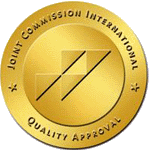“SELF-MANAGEMENT: THE KEY TO EFFECTIVELY MANAGING YOUR HEALTH”

Self-management (self-help) is the ability of individuals, families and communities to improve health, prevent disease, maintain normal body condition and cope with illnesses independently or with the support of health professionals. The concept of self-help is based on the recognition of the active role of people in protecting their health.
Self-care measures increase responsibility and initiative, and empower individuals and society as a whole in relation to their health and well-being.
Self-care plays a key role in the management of chronic diseases, allowing patients to actively control their health and improve their quality of life. It includes keeping a healthy lifestyle, strictly following the doctor's recommendations, which may include medications, digital tools, diagnostics.
- Lifestyle:
- Exercise regularly, appropriating to your age and health (at least 30 min/day).
- Keep a healthy diet rich in useful nutrients and limit the consumption of unhealthy foods.
- Monitor your weight (BMI=weight (kg)/height2 (m). N=18-25).
- Give up bad habits (if any)
- Ensure healthy sleep (at least 7 hours/day, go to bed before 23.00).
- Emotional well-being:
- Control your emotions and strive for psychological comfort.
- Look for ways to manage stress and negative emotions that suit you (meditation, yoga, music, hobbies, etc.).
- Health control:
- Get regular medical check-ups and tests.
- Monitor your health indicators (blood pressure, pulse, blood sugar and cholesterol levels, etc.).
- Don't be shy about asking questions to health care professionals to stay informed about your current health status.
- Treatment management:
- Take your medications exactly as prescribed.
- Keep records of the medications you take and keep track of their expiration dates.
- Do not skip medications unless there are problems with side effects.
- Perform all medical procedures as prescribed by your doctor.
- Support from others:
- Tell your loved ones about your health condition and ask for support if needed.
- Discuss your concerns/difficulties with your family and friends if there is a misunderstanding.
Remember! Conscious management of your own health helps to achieve a stable state of the disease and reduce the risk of complications and unfavorable outcomes.




